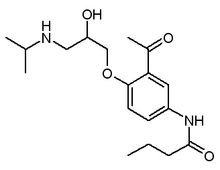Physicians today have a variety of drugs from which to choose when treating a patient with hypertension. These medications must be carefully chosen to fit the patient's needs, and even then, responses will vary. The Medical Letter recently outlined the most common drugs prescribed for hypertension in the United States. All categories of drugs were reviewed, except for those used in hypertensive emergencies.
Angiotensin-converting enzyme (ACE) inhibitors are considered generally effective and well tolerated but appear to be less effective in black patients. ACE inhibitors prolong survival in patients with heart failure or left ventricular dysfunction after acute myocardial infarction. They may also preserve renal function in patients with diabetes or nondiabetic nephropathies. However, patients who are volume depleted, have bilateral renovascular disease or congestive heart failure, or are taking diuretics should not take ACE inhibitors. In addition, pregnant women should not use ACE inhibitors because of the risk of fetal injury and death, but exposure at the time of conception or early in pregnancy does not appear to produce adverse outcomes.
Beta blockers are also considered to be generally effective and, like ACE inhibitors, they appear to be less effective in black patients. Beta blockers alone appear to be less effective than diuretics alone in treating hypertension in the elderly. The cardioselective beta blockers, including metoprolol, acebutolol and betaxolol, have a greater effect on cardiac adrenergic receptors than on receptors in the bronchi and blood vessels. However, they become less selective with increased dosages, and even low dosages of cardioselective beta blockers can cause bronchospasm in patients with asthma.
Calcium-channel blockers cause vasodilatation, which decreases peripheral resistance. The heart's response to this action varies, depending on the specific medication given. Some classes of calcium- channel blockers actually slow the heart rate, affecting atrioventricular conduction, and should be used with caution in patients taking beta blockers concurrently. Calcium-channel blockers should also be used with caution in patients with heart failure. Short- acting calcium-channel blockers, particularly nefedipine, should not be used for treatment of hypertension.
Diuretics decrease mortality in patients with hypertension. Many thiazide diuretics used in the treatment of isolated systolic hypertension have also been shown to reduce the incidence of stroke and cardiovascular events in elderly patients. One advantage to using diuretics is that small dosages are very effective. Dosages as low as 6.25 mg daily can enhance the effectiveness of other drugs and minimize adverse effects such as hypokalemia.
Central alpha-adrenergic agonists do not inhibit reflex responses as completely as sympatholytic drugs that act peripherally. However, they can produce adverse effects such as sedation, dry mouth and depression.
Alpha-adrenergic blocking agents cause less tachycardia than vasodilators but often cause postural hypotension, particularly after the first dose. Unlike beta blockers and diuretics, these drugs do not adversely affect serum lipid levels; rather, they may increase the ratio of high-density lipoprotein (HDL) to total cholesterol. While they may relieve the symptoms of prostatism in men, they may cause stress incontinence in women.
Direct vasodilators often cause reflex tachycardia but rarely cause orthostatic hypotension as do alpha blockers. Vasodilators are typically given in combination with a beta blocker or a centrally acting drug to minimize the reflex increase in heart rate and cardiac output. A loop diuretic should also be given in conjunction with vasodilators to avoid sodium and water retention. Patients with coronary artery disease should not be given vasodilators.
The authors conclude that diuretics, beta blockers, ACE inhibitors, angiotensin receptor antagonists and calcium-channel blockers are the agents best tolerated in the treatment of hypertension. Some, but not all, of the consultants believe that use of calcium-channel blockers should be reserved for patients who do not respond to or cannot tolerate diuretics, beta blockers or ACE inhibitors.
Barbara Apgar, M.D., M.S.
Medical Letter consultants. Drugs for hypertension. Med Lett Drugs Ther March 12, 1999;41(1048):23-8.
COPYRIGHT 1999 American Academy of Family Physicians
COPYRIGHT 2000 Gale Group



